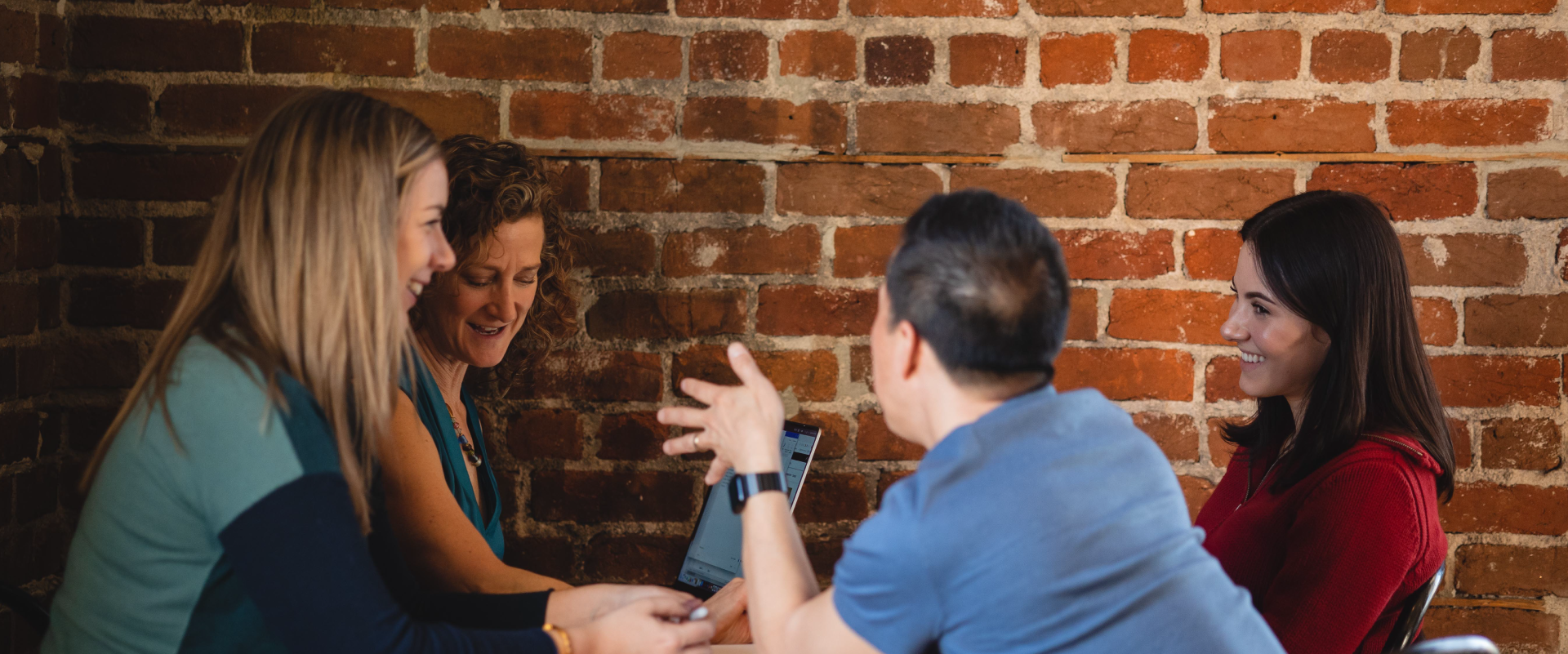Refocusing Public Sentiment
When you work in public health communications, you become acutely aware of the role of the “public” in how messaging is received. Let’s just say after several years managing COVID-19 communications, we’re well sensitized. So when Washoe County Health District (WCHD) approached us to help change the name of their organization, we already knew assessing public opinion would be key.
Making change under public scrutiny
The biggest challenge WCHD was looking to overcome through a name change was the perception that the Health District was governed by the county and at the mercy of partisan politics — neither assertion is true. Another challenge was the public’s lack of understanding of the District's full role in the community — most know it for one or two of its programs. Understanding the role of public opinion when it comes to both utilizing and trusting health organizations, we knew focus groups could play a vital role in the name change process.
The how and why of a renaming project focus group
Focus groups can be an effective tool for understanding audience needs and concerns, collecting customer feedback, finding out what product or service changes are wanted, or simply gaining a better understanding of the customer. Focus groups can deliver the insight we need to help our clients reach their goals. Live interactions with target audiences in a focus group setting can provide unique insight and nuanced information that is lost in surveys or other research protocols.
With WCHD, we used a staged approach. We met with the naming committee first to learn about the organization, understand known concerns and get a feel for the political landscape. The committee was, essentially, our first focus group. Using their input and our own extensive research, we developed a short list of names and taglines for the organization. We then held a series of focus groups.
- Five focus groups with a total of 31 participants.
- Two with an internal audience:
- 1 with WCHD employees
- 1 with Join Information Center members (City of Reno, Sparks and Washoe County government employees who managed the county’s COVID-19 response)
- Three with external audiences
- 2 in English
- 1 in Spanish
We strove for diversity in our focus groups to reflect the diversity of WCHD program users, including individuals of different ethnicities, ages, genders and representing various industries and community groups.
Internal vs external, the value of diverse opinions
We chose to use both internal and external focus groups to gather different information and accomplish different goals. Our internal focus groups were composed of people inside the organization and intimately familiar with it — Washoe County Health District employees and Washoe COVID-19 Joint Information Center members.
Benefits of internal focus groups
- Participants are more aware of goals and can provide more precise input
- They are more familiar with the products and services that you provide
- Allows for a more collaborative environment amongst employees
- Easy access to participants, making the process faster
Benefits of external focus groups
External focus groups are made up of people outside of the company, and can include current or potential customers and users. We chose to have two in English and one in Spanish.
- Participants are the target group for product and service research
- Get direct feedback from people who are most affected by the product or service
- Gain better insight into customer decision making and thought processes
- Allows for open discussion between the company and its customers
Honing focus group goals
We utilized focus groups after we had generated a short list of name and tagline options to determine if we had any red flags (words that had an unforeseen negative connotation for instance), which name best described the scope of WCHD services, and to gauge preference among the five options.
Focus group goals:
- What might be problematic from the name choices?
- Are there any positive or negative feelings related to any of the options?
- What name best describes everything the Washoe County Health District does?
The focus groups were structured but informal to encourage open discourse. The various groups provided different and valuable perspectives. Our focus group format included identifying initial name and tag preference, discussion and subsequent preference post discussion. The open, interactive process was valuable for anecdotal information gathering.
What we learned
The goal was not to determine a new name solely based on focus group results. In the final calculation, the focus groups helped narrow down the options as we considered the various challenges we were looking to overcome. A Google survey of several hundred Washoe County residents further informed our recommendations.
Like many communication projects, choosing a name is a subjective process. Much of what Estipona Group does on a daily basis is driven by our opinions and experience as seasoned marketers (it’s true, we know things). By delivering name and tagline recommendations to WCHD along with the results of our research, focus groups and surveys, we were able to make a more supported case for our choices. They agreed with our recommendation and the new name will roll out in several months — so, success!
If you have marketing challenges that might be better achieved with the insight of a focus group, we can help. Contact Estipona Group and we’ll help you refocus (see what we did there?) your marketing strategy.



